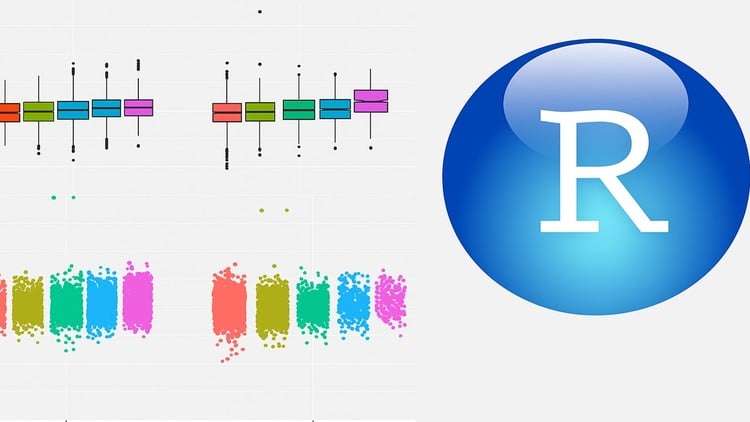
RStudio | Learn Linear, Logistic, Log-Binomial, and Poisson Regression to Estimate Odds Ratios and Risk Ratios
What you will learn
Apply ggplot2 to create professional, publication-quality graphs for biostatistical data
Use gtsummary to generate clear, formatted regression tables for research reporting
Perform and interpret Linear Regression for continuous outcomes
Conduct Logistic Regression to estimate odds ratios for binary outcomes
Apply Log-Binomial Regression to directly estimate risk ratios
Add-On Information:
Note➛ Make sure your 𝐔𝐝𝐞𝐦𝐲 cart has only this course you're going to enroll it now, Remove all other courses from the 𝐔𝐝𝐞𝐦𝐲 cart before Enrolling!
- Master data preparation techniques essential for robust biostatistical analysis, including data cleaning, transformation, and efficient management of both categorical and continuous variables within the RStudio environment.
- Develop a profound understanding of regression model assumptions, learning how to critically assess these for Linear, Logistic, Log-Binomial, and Poisson models to ensure the validity and reliability of your statistical inferences.
- Implement effective strategies for identifying and handling confounders and interaction terms, enabling you to build more sophisticated and accurate models that genuinely reflect complex biological relationships.
- Perform comprehensive diagnostic checks on your regression models, identifying potential issues such as heteroscedasticity, multicollinearity, and influential observations, and apply appropriate remedies to improve model robustness.
- Skillfully interpret the results of Poisson Regression, specifically understanding its application for modeling count data outcomes and precisely communicating incidence rate ratios within a biostatistical context.
- Gain expertise in variable selection methodologies to construct parsimonious yet powerful models, avoiding overfitting and enhancing the generalizability and interpretability of your findings.
- Learn to extract and present a complete suite of key inferential statistics beyond just Odds Ratios and Risk Ratios, including comprehensive confidence intervals, p-values, and various model fit statistics, providing a holistic view of your research outcomes.
- Navigate the full analytical workflow within RStudio, from efficient data import and manipulation to generating publication-ready reports, thereby streamlining your entire biostatistical research process.
- Understand the theoretical underpinnings of Generalized Linear Models (GLMs), providing a conceptual framework that unifies the various regression techniques explored in the course and allows for flexible modeling of diverse data types.
- Build predictive models capable of forecasting outcomes based on your regression analyses, and accurately quantify the uncertainty surrounding these predictions to inform evidence-based decision-making.
- PROS:
- Hands-on, practical application: Gain immediate proficiency with RStudio, ggplot2, and gtsummary through real-world biostatistical examples.
- Directly applicable skills: Acquire competencies directly transferable to research, academic, and clinical settings for data analysis and reporting.
- Emphasis on interpretation: Learn not just how to run models, but critically interpret and effectively communicate complex statistical findings.
- Comprehensive regression coverage: Master a suite of essential regression techniques tailored for various biostatistical outcome types.
- Publication-ready outputs: Produce high-quality, professional graphs and tables suitable for scientific publications and presentations.
- CONS:
- Assumes foundational R knowledge: While practical, the course may move quickly for individuals with absolutely no prior exposure to R programming or basic R syntax.
English
language